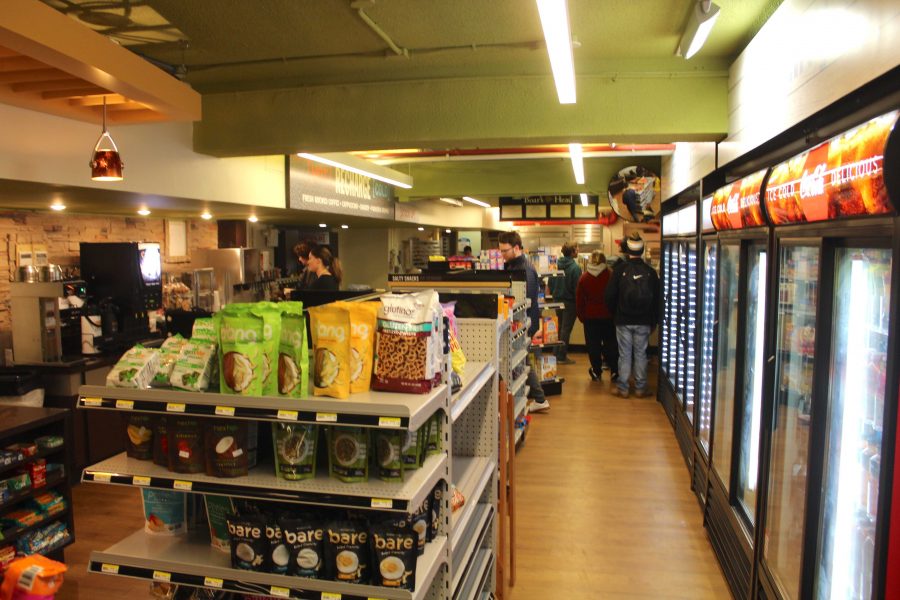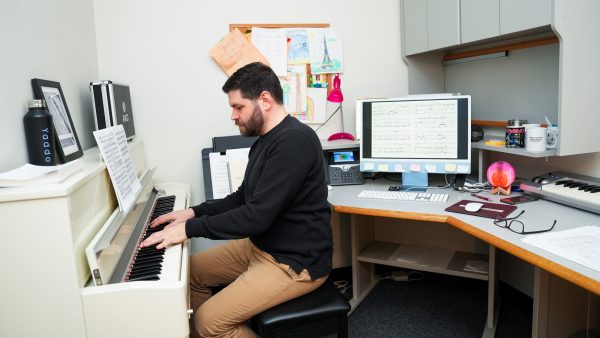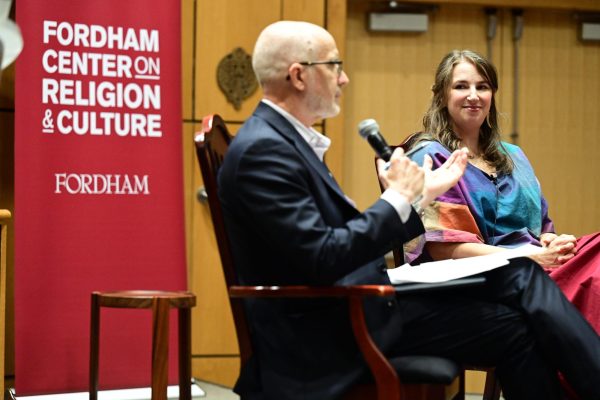Fordham Dining and the Future
Since last spring, the COVID-19 pandemic has affected many aspects of the typical college experience for Fordham students. State guidelines and restrictions have paused or profoundly altered many in-person campus activities and have affected many routine operations on Fordham’s campuses, especially when it comes to campus dining.
Fordham Dining is working to bring operations back to a normal level, but because of the decrease of students physically on campus, there is a financial struggle, said Deming Yaun, the Fordham dining contract liaison.
“Let’s not kid ourselves; we have to meet [our] budget,” said Yaun. “Fordham Dining has [previously] always contributed positively to the budget. This year we are not.”
The past year has been difficult for dining operations at Fordham, but Yuan said he is looking at next year with an “optimistic lens.” Fordham dining staff expect operations to get back to what “normal” looked like before the pandemic.
The biggest struggle for Fordham Dining is the state guidelines for residence hall occupancy, which has recommended lowering the capacity for on-campus residence halls. With fewer students living on campus who have to purchase mandatory meal plans, the Fordham Dining budget may not fully recover, explained Yaun.
The popularity rankings of on-campus dining options have not been affected by the pandemic, said Yaun. It is the same as previous years, with the Marketplace ranking first, then Urban Kitchen, followed by Queens Court, Starbucks and then Cosi.
Students’ satisfaction remains important to Fordham Dining, said Yaun. Before the COVID-19 pandemic, Fordham Dining was “on a roll with improving the satisfaction ratings,” he said. Improving satisfaction ratings for on-campus dining was not forgotten during the pandemic. Still, there were new issues to be addressed about how campus dining would function in these unprecedented circumstances.
Fordham Dining uses indicators on national trends about food preferences, explained Yaun. They also use student focus groups and on-campus statistical data to try to improve students’ overall campus dining satisfaction rating. The recent trends in food preferences for college-aged students suggest it is beneficial to provide more vegan, vegetarian and plant-based foods, said Yaun. He said he expected that students will have access to more plant-based options at Fordham in the near future.
Fordham Dining is expecting some changes to both Rose Hill and Lincoln Center as COVID-19 guidelines and restrictions begin to lessen. Before the pandemic, Fordham Dining was close to an agreement with a Halal restaurant in Brooklyn, which would open a location at Lincoln Center, said Yaun. The Lincoln Center campus has the space available to accommodate a new restaurant, he explained.
Fordham’s Rose Hill campus may also see a new Halal option added if it is able to fit into the budget, said Yaun.
The popular Sous Vide Kitchen would also like to expand and add a location at Rose Hill, and Fordham Dining staff also want them to have a location at Rose Hill, said Yaun.
“COVID-19 has just stalled everything,” he said. “We have to go hand and hand with what budgets will allow.”
Dining has received some funds this year to replace outdated equipment in the Marketplace as well as a gas-fired pizza oven that will make the pizza taste like it was made in a wood fire oven, said Yaun.
Julian Navarro, FCRH ’21, said he is excited about the possibility of more options for on-campus dining. “A halal restaurant on campus would be great,” he said. “The more options the better.”
Julia Daigle, GSB ’21, said she also thinks adding more options on campus is a good idea. “I think Rose Hill could benefit a lot from more options on campus,” said Daigle. “I also think it could help with long lines and overcrowding at the places we currently have.”










































































































































































































